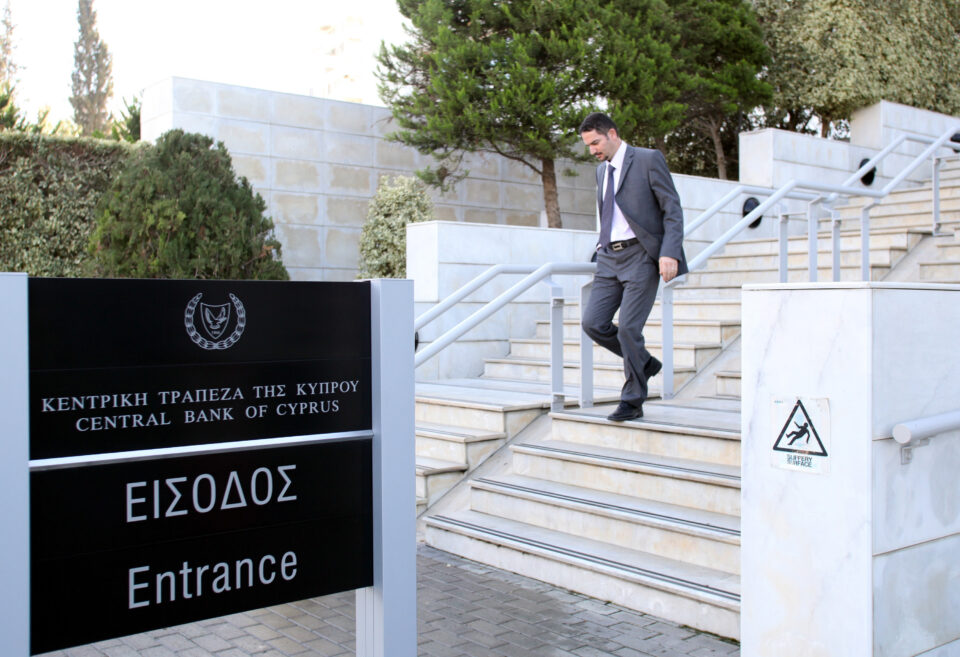By Les Manison
Comparative data for 2021Q2 published by the ECB under its Single Supervisory Mechanism, reveal that the three largest Cypriot banks performed poorly relative to most of their counterparts in the euro area. Only Greek banks performed worse, while banks in other euro area countries were far more profitable.
More specifically, these Cypriot banks recorded an average return of 1.25 per cent on their equity in 2021Q2 whereas such returns for banks in other euro area members ranged from -34.8 per cent in Greece to 3.47 per cent in Malta and to 11.5 per cent in Spain. The return on assets showed a similar picture with the figure for Cypriot banks being 0.09 per cent, while such returns ranged from -2.74 per cent for Greek banks to 0.22 per cent for German banks and up to 1.30 per cent for Slovene banks.
The low profitability of Cypriot banks is attributable to their meagre levels of net interest income relative to their assets. Indeed, net interest income of Cypriot banks in 2021Q2 amounted to less than 0.1 per cent of their total assets in contrast to an average ratio 0.7 per cent for other euro area banks. Moreover, it is the composition of the asset portfolio of Cypriot banks that is almost entirely responsible for the relatively low levels of net interest income. While other euro area banks had on average over 56 per cent of their assets in interest bearing loans and advances, Cyprus had only 42 per cent. And according to the Central Bank of Cyprus, 17.6 per cent of the total loans of Cypriot banks at end-June 2021 were classified as non-performing meaning that they do not earn interest, whereas in other euro area countries, apart from Greece, NPLs according to ECB data for the main banks were less than 5 per cent of their total loans.
Furthermore, Cypriot banks have a much higher proportion of their assets in cash and balances at central banks – 35.8 per cent which “earn” negative interest – than other euro area countries that have a corresponding ratio on average of 16.0 per cent; indeed, this is a significant factor depressing the net interest income of Cypriot banks.
In addition, the profitability of Cypriot banks suffers from the fact that a high proportion of its loans are impaired, meaning that they have to incur provisioning expenses significantly higher than in most other countries where NPLs are much lower as indicated above. Indeed, by June 2021 provisions of all Cypriot banks against NPLs had accumulated to over €2.3 billion or nearly 47 per cent of such impaired loans.
Why do stakeholders tolerate low bank profitability?
For many years Cypriot banks have experienced low profits and losses, resulting in the non-payment of dividends to shareholders since 2004. And with share prices of banks on a persistent downward trend over the last 10 years, longer-term shareholders have had hardly any opportunity to reap capital gains. So why do stakeholders such as major shareholders and even bank supervisors tolerate continued low bank profitability? What are they gaining from a situation where bank activity is being concentrated on debt collections, debt swaps and debt sales rather than in engaging in productive lending? It appears that over recent years Cypriot banks have hugely reduced the amount of NPLs on their balance sheets in essence by selling the collateral (mostly physical property) part and parcel with such loans, often at below market value, to credit acquiring companies and hedge funds, some of which are major shareholders in the banks themselves. These companies and funds in turn are usually able to sell the distressed assets at handsome profits.
In this connection, it is noted that government policies continue to be biased towards boosting prices in an over-supplied property market. Tax incentives, including a reduction in the VAT rate from 19 per cent to 5 per cent on property purchases, and attempting to keep the ‘golden passport’ scheme alive are all geared to elevate demand for Cyprus property, a considerable portion of which ends as collateral backing bank loans.
Thus, it seems that the lucrative business of substantially reducing bank balance sheets through the sale of NPLs is quite profitable for major shareholders. But, with the sale of such distressed debt and related asset transfers there is no real wealth creation and very little financing of productive activity in the real economy. In effect, there is wealth extraction taking place through the systematic transfer of assets from the many to the few who profit from this process. Moreover, households and non-financial corporations remain heavily indebted with debt to GDP ratios of around 85 per cent and 160 per cent, respectively, at end-March 2021.
What can be done?
Banking activity in Cyprus needs to be redirected toward making profits from productive lending that contributes to real economic growth rather than being preoccupied with transactions involving the sales of distressed assets and the unproductive transfer of wealth. Banks can return to making adequate profits by raising the proportion of interest-yielding loans on their balance sheets and decreasing substantially the amount of cash and balances at central banks carrying negative interest. But, most unfortunately, many bank customers remain heavily indebted. Accordingly, banks have limited scope for using their abundant liquidity in increasing loans to creditworthy entities so as to raise their net interest income.
Furthermore, the proposed scheme of the government to guarantee the repayment of bank loans if put into effect would just add debt to an already over-indebted private sector leading the government to have to repay a new surge of NPLs. Undeniably, with the cover of government guarantees banks would have little hesitation in extending loans to uncreditworthy customers resulting inevitably in higher taxes for Cyprus citizens, but even more importantly increasing the total debt (private and public) and rendering conditions for sustainable economic development even worse.
Hence, before any meaningful progress can be made in improving the quality of bank asset portfolios banks should assist in cleaning-up the balance sheets of non-financial companies and households. Banks need to write off the unpayable debts of private sector entities and legally force and induce so-called strategic debt defaulters and wealthy debt delinquents to repay their loans. But with these actions the banks and the economy would initially suffer as banks would incur losses for debt write-offs to the extent that impaired loans are not covered by provisions, while many entities resuming the repayment of loans would have to increase their savings and reduce their expenditures resulting in a further depletion of equity and in what is termed as a balance sheet recession.
However, to benefit subsequently from the repair of balance sheets the government would need to cooperate with the private sector in arranging productive investments connected to a considerable extent with implementing the Recovery and Resilience plan. This would provide the possibility for banks to lend to creditworthy customers for financing economically viable projects that could greatly enhance their interest income. Also, with the phasing out of NPLs provisioning expenses for impaired loans would be reduced and contribute to raising bank profits.
It can be concluded that current and proposed government and bank policies will most likely continue to damage the profitability of banks and raise the existing excessive indebtedness of the economy. Accordingly, it is recommended that the above policy adjustments, though initially costly to banks and the economy, would place banks in a position where they can contribute significantly to financing sustained economic growth and, in the process, raise their own profitability and longer-term viability.
Leslie G Manison is an economist and financial analyst, specialising in macroeconomic policy analysis, bank viability assessments, and international financial relations. He is a former senior economist at the International Monetary Fund, an ex-advisor in the Cyprus finance ministry and a former senior advisor at the Central Bank of Cyprus







Click here to change your cookie preferences